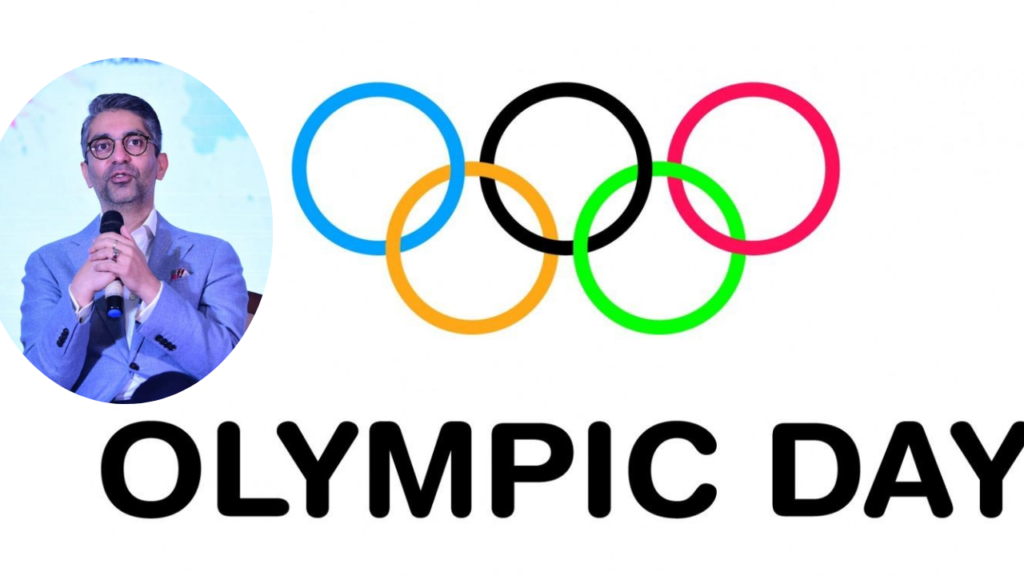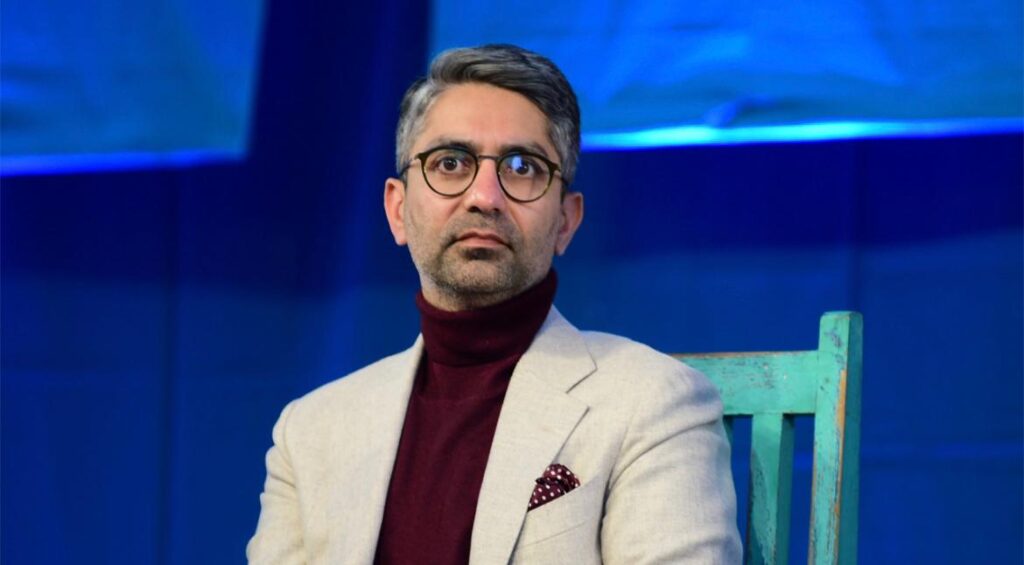
Sixteen months before the 2016 Rio Olympics, Abhinav and I were together at an event in Nagpur. We discussed how he had dealt with adversity in his decade-and-a-half long career as an international sportsman. Just as the organisers were making the initial announcements asking people to settle down, I saw something very disturbing. Abhinav, who was sitting in the chair next to me, looked uncomfortable. All of a sudden, his hand was shaking involuntarily. It was clear he was trying his best to hide it. Each time we made eye contact, Abhinav tried to avoid the probing gaze. It was shocking and surprising. Here was a shooter of the highest pedigree preparing himself for the Olympics. Yet, his hand was shaking, with him in no control to stop it. It couldn’t be real. But it was.
Bindra, to my utter surprise, could not stop it for a good few minutes and had a look of resignation on his face. His secret had been revealed, and I was privy to something not many knew in Indian sport. The on-stage conversation went on as if everything was good and under control. Abhinav spoke about his training, his willingness to give it one more shot and finally what Rio 2016 meant to him. But I was interested in none of this. The mind was fixated on what I had seen a few moments earlier, and trying to understand what was going on. Was it just something that happened then, or was it something Abhinav had been dealing with for a while? If it happened in competition, what would it mean for his shooting career and, more importantly, his dream to make it to Rio? In a precision sport, if his hand was shaking the way it was, he could well decide to not compete and embarrass himself.
The moment the show was over, I asked him if I could accompany him to his room. Abhinav immediately understood the reason, but surprisingly did not say no. The moment he entered the room and was left alone by the organisers, he let out the shocking news: he was suffering with epilepsy and that was the reason he had wanted to leave the sport soon after the 2014 Glasgow Commonwealth Games.

While he has written about his medical condition in his updated autobiography published in 2017, at that time in 2015, it was one of the big secrets in Indian sport. And to see him say it in the most matter-of-fact manner was even more disturbing. How could he manage his condition and get ready for Rio? How would he prepare while having to deal with epilepsy? The truth is he did, and that’s what makes him one of the greatest athletes in the history of Indian Olympic sport.
In his words, “Rio 2016 will always be the Olympics I was best prepared for. I had done everything I could possibly have. I managed to control the medical condition, train for every eventuality that may come my way and was confident nothing could surprise me at Olympic stage. That’s why I have no regrets, for as an athlete all you can do is prepare and then hope the result goes your way. It did not in Rio, but so be it.”
Having followed his training closely, I tend to agree with him wholeheartedly. He even carried a portable machine to Rio, which would allow him to train on an unstable surface just in case there was a balance issue at the range. He had faced a similar situation in Athens in 2004, something that may have cost him an Olympic medal then despite being in real good form. With experience, he had learnt to deal with every probability for that’s what he felt would give him the best shot at a second Olympic medal.
Being Abhinav Bindra: London and the Return of Hunger
I have known Abhinav for a decade and a half now. Until London 2012, I did not know the backstage, which is so very important to best understand an athlete. It all started when Abhinav lost in London. He had failed to defend his gold and failed to win back-to-back Olympic medals.
Gagan Narang, another exceptional shooter of enormous potential, had won the bronze in the same event and opened India’s medal count. Narang was the present in London, while Abhinav was the fallen superhero. While all of us were seeking out Gagan for interviews, I remember walking up to where Abhinav was opening his jacket and observing his every movement. Any public show of disappointment could provide a story. How was he dealing with failure? This is what fans back home would want to know. Would he do something dramatic and quit the sport? But Abhinav, as we have learnt with time, is not about drama. He is rather boring to the extent of being predictable.
All he did in London was pack up his equipment, smile and quit the range. “I have lost and that’s fine,” he said. “I wasn’t good enough. Maybe I did not train hard enough.” That was where we sensed something. Was he trying to say he was a tad complacent coming into London or that he lacked motivation? Couldn’t be, for we were talking about the Olympics and Abhinav had just squandered an opportunity to win back-to-back Olympic medals for himself and India. Was there something he did not want to speak about?
When we met a month after London, Abhinav had regained focus. He seemed at peace with himself and had started planning for the 2014 Commonwealth Games and the Incheon Asian Games that same year. Abhinav had not won a CWG gold medal and it was something he wanted badly. The hunger that had driven him to push the limits in Beijing but had disappeared in London was back again, and he was mentally ready for one more crack at sporting glory.
For the record, he did win the gold medal at the CWG in Glasgow in 2014 and followed it up with a bronze medal-winning performance at the Incheon Asian Games. And soon after he had finished with Incheon, he tweeted saying he would henceforth shoot only as a hobby and his days as a professional athlete were over.

When I quizzed him on what he meant by a hobby shooter, he said, “My tweet is pretty clear. Let us not complicate it too much. My professional career from here is no longer there, which means training six hours a day, 40 hours a week, will no longer be there. I will not be doing it henceforth. I will train twice a week. I will compete at the national level and only if I am good enough will I participate in international competitions. I don’t know if a hobby shooter can compete at the Olympics. Please don’t take it that far. Please understand it bit by bit.”
In hindsight, it is clear why he said what he said at the time. He had already managed his medical condition for a while and was unsure if it could be done long-term. At the same time, he did not want public sympathy by saying he had epilepsy. “I did not win a medal in Rio, not because I had epilepsy, but because I wasn’t good enough on the day,” he maintains.
That’s quintessential Abhinav. He is a proud athlete who will never hide behind an excuse. In the aftermath of the Incheon games he was unsure if he could compete any further, and yet he was in no position to publicly talk about his medical condition. The hobby-shooter bit was his way to buy himself time. And only when he was convinced about being able to manage the condition did he start competing in the Olympic quota events to give himself one more opportunity at Olympic glory.
It is necessary to state here that even if Abhinav had retired after Incheon, he would still have been remembered as one of the greatest athletes to have represented India. Whether or not Abhinav made it to Rio, he would still be remembered as the central architect of India’s shooting revolution. The fact that seven of India’s medals in the 2014 Asiad had come from shooting was largely a by-product of the ‘Bindra moment’, the gold that Abhinav won at Beijing in 2008, not to forget Rajyavardhan Rathore’s silver at Athens in 2004.
In his autobiography, A Shot at History (with Rohit Brijnath), Abhinav has repeatedly emphasised the importance of timing, a state of full preparedness before the big moment arrives. Being the nation’s first individual Olympic gold medal winner will always make him special. But what makes the ‘Bindra moment’ pivotal for Indian sport/shooting is that it encouraged thousands to take up the sport despite its lack of popular appeal and television coverage.
And that’s what we celebrate on Olympic day.
Watch a very special show with Abhinav Bindra, who joins us from Paris, and Christian Klaue, Corporate Communications and Public Affairs Director of the IOC, as part of our Olympic Day special. Promo today and the full show tomorrow 5pm India time. This show is supported by Tata Steel and, may we say, we much appreciate the support.



